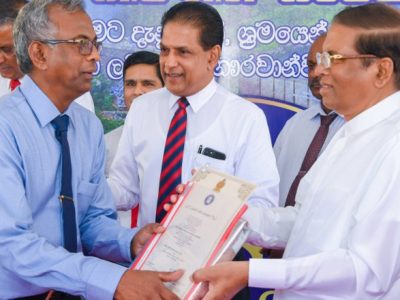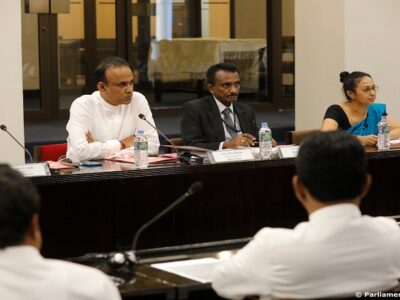(COLOMBO, LANKAPUVATH) –While Sri Lanka in many ways has been a development success story since its independence 70 years ago, the island nation still faces some critical challenges as it strives to transition to another stage of its development and become a competitive upper middle-income country, according to the World Bank Country Director for Sri Lanka and Maldives Dr. Idah Z. Pswarayi-Riddihough.
In a blog post titled “Sri Lanka at 70: Looking back and forward”, the World Bank Country Director observes that the country’s current overreliance on the public-sector as the main engine for growth and investment, from infrastructure to healthcare, is reaching its limits.
“With one of the world’s lowest tax to gross domestic product (GDP) ratios – 12% in 2016, down from 24% in 1978 – Sri Lanka’s public sector is now facing serious budget constraints and the country needs to look for additional sources of finance to boost and sustain its growth,” she points out.
The World Bank official says the country needs to move urgently to more private investment, tradable sector-led growth model to sustain growth if it were to become an upper middle-income country
Dr. Pswarayi-Riddihough notes that the current government as outlined in its Vision 2025 has kick started an ambitious reform agenda to help the country move from a public investment to a more private investment growth model to enhance competitiveness and lift all Sri Lankans’ standards of living.
She says steering this vision into action is urgent as Sri Lanka is one of the world’s most protectionist countries and one of the hardest to start and run a business.
“As it happens, private foreign investment is much lower than in comparable economies and trade as a proportion of GDP has decreased from 88% in 2000 to 50% in 2016. Reversing this downward trend is critical for Sri Lanka to meet its development aspirations and overcome the risk of falling into a permanent ‘middle-income trap’,” Dr. Pswarayi-Riddihough explains.
She says the Government’s National Trade Policy, which sets out a path to enhance trade within and outside the region and create an enabling environment to attract foreign investment is a major step in the right direction.
According to the Country Director, the World Bank has been responding to Sri Lanka’s need to involve the private sector to spur its development.
Last October, The global lender signed a $75 million agreement with the government to help modernize and improve the efficiency of Sri Lanka’s financial sector. “This, in turn, will help small businesses and entrepreneurs, which suffer most from lack of clarity around trade rules and regulations, compete in the markets and create better jobs.”
Assuring the global lender’s support for Sri Lanka’s development Dr. Pswarayi-Riddihough said the World Bank remains engaged and will use its expertise and financial resources. “We continue our support to Sri Lanka’s development with a focus on attracting private capital and investment to optimize the use of scarce public resources.”




